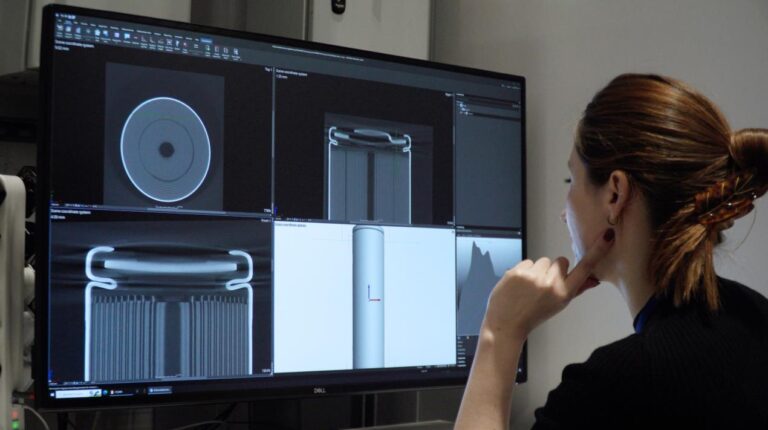The UK Battery Industrialisation Centre (UKBIC) has opened its upgraded and extended Battery Development Laboratory (BDL). The new lab has increased the facility’s capabilities in key areas such as battery materials characterization, cell analysis and forensic activities.
The new laboratory allows customers from all over the world to have their materials and cells analyzed and tested in real time. UKBIC says the 240m2 laboratory is open to all clients and will enable precise characterization of products processed on the facility’s existing manufacturing line or its new flexible development line (once it is operational), as well as products brought into the facility from elsewhere.
The laboratory could carry out characterization for analysis including material properties such as morphology, crystal structure, elemental and material compositions. It has equipment for elemental analysis (ICP), electrode imaging and particle morphology (SEM/EDX), phase analysis for crystalline materials (XRD), thermal properties and thermal stability (TGA), carbon-based materials characterization (Raman) and electrolyte characterization (GC, NMR).
It also supports chemical and physical processing as well as quality control (QC) analysis and the safe handling of electrode materials and water-based slurry. There is also a protected bench space for handling electrodes and a double glove box for coin cell assembly.
The new lab is also equipped with thermal and optical cameras for investigating cell failures and for the safe teardown of cells. Highlights include a VHX microscope (Keyence), a glove box (MBraun) and a shadowgraph (Keyence) microscope with automatic dimension measurement system. There is also provision for advanced electrochemical analysis, and a CT scanner for non-destructive analysis of cells to understand failure modes without the need for physical cell teardown. This capability is a strategic partnership between UKBIC and Waygate Technologies.
The new lab is the second in a series of £74m (US$93m) upgrades to UKBIC to come online. Funded through the Faraday Battery Challenge by UK Research and Innovation, other enhancements include cell cyclers and environmental chambers, a clean and dry zone where customers can rent space, and a flexible pilot line where customers can undertake early-stage optimization cycles and production trials.
Richard LeCain, chief technology officer at UKBIC, said, “Having this new on-site resource will ensure customers have a steady flow of data as they develop and scale new manufacturing processes, materials and chemistries as they head toward commercial production. This in-house capability will be an incredible resource for UKBIC and the UK battery industry.”


